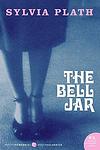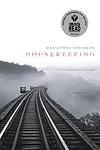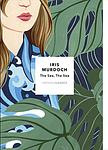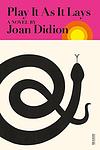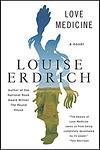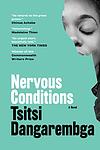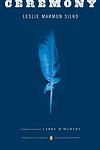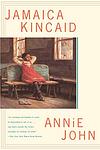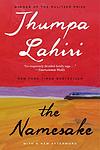The Greatest "Contemporary" Books of All Time Written by Women
Click to learn how this list is calculated.
This collection epitomizes the pinnacle of literature authored by women, aggregating selections from 300 'best of' book lists into a definitive guide to the most acclaimed works by female writers. This aggregation reflects a comprehensive evaluation of literary achievements, offering a rich tapestry of perspectives and voices. For a deeper understanding of our selection methodology and the rigorous criteria behind these rankings, please visit our rankings page.
Genres
Contemporary books are a genre that focuses on stories set in the present day, often exploring current social, cultural, and political issues. These books are typically written in a modern style and often feature relatable characters dealing with real-life situations. Contemporary books can cover a wide range of topics, from romance and family drama to coming-of-age stories and thrillers. The genre is constantly evolving to reflect the changing world we live in, making it a popular choice for readers who want to stay up-to-date with the latest trends and issues.
Date Range
Reading Statistics
Click the button below to see how many of these books you've read!
Download
If you're interested in downloading this list as a CSV file for use in a spreadsheet application, you can easily do so by clicking the button below. Please note that to ensure a manageable file size and faster download, the CSV will include details for only the first 500 books.
Download-
1. The Bell Jar by Sylvia Plath
The novel follows the story of a young woman who wins a guest editorship at a magazine in New York City and, after a series of personal and professional disappointments, suffers a mental breakdown and returns to her family, where she continues to struggle with depression and suicidal thoughts. The protagonist's experiences in psychiatric institutions and her attempts to reclaim her life are depicted with brutal honesty, making it a poignant exploration of mental illness and the societal pressures faced by women in the mid-20th century.
-
2. Song of Solomon by Toni Morrison
The novel explores the life of an African-American man, Macon "Milkman" Dead III, from birth to adulthood. Set against the backdrop of racial tension in the mid-20th century United States, it delves into his journey of self-discovery and understanding his heritage. As Macon embarks on a literal and figurative journey south to reconnect with his roots, he encounters various characters that help him understand his family history and the power of community. The narrative is deeply rooted in African-American folklore and mythology, offering a profound commentary on identity, personal freedom, and the destructive power of racism.
-
3. Housekeeping by Marilynne Robinson
The novel explores the life of two sisters, Ruth and Lucille, who are raised by a series of relatives in a small, secluded town in Idaho after their mother's suicide. The girls' lives are profoundly affected by the eccentric and transient lifestyle of their aunt Sylvie, who becomes their guardian. The narrative delves deeply into themes of family, identity, womanhood, and the impermanence of life, ultimately leading to a divide between the sisters as they choose different paths in life.
-
4. The God of Small Things by Arundhati Roy
This novel is a poignant tale of fraternal twins, a boy and a girl, who navigate through their childhood in Kerala, India, amidst a backdrop of political unrest and societal norms. The story, set in 1969, explores the complexities of their family's history and the tragic events that shape their lives. Their mother's transgression of caste and societal norms by having an affair with an untouchable leads to disastrous consequences, revealing the oppressive nature of the caste system and the destructive power of forbidden love. The novel also delves into themes of postcolonial identity, gender roles, and the lingering effects of trauma.
-
5. White Teeth by Zadie Smith
This novel follows the lives of two friends, a working-class Englishman and a Bangladeshi Muslim, living in London. The story explores the complex relationships between people of different races, cultures, and generations in modern Britain, with themes of identity, immigration, and the cultural and social changes that have shaped the country. The narrative is enriched by the characters' personal histories and the historical events that have shaped their lives.
-
6. The Sea, The Sea by Iris Murdoch
A successful and renowned London theatre director retires to a secluded house by the sea in an attempt to write his memoirs. His peaceful solitude is disrupted when he encounters his first love from decades ago and becomes obsessed with winning her back. As he spirals into self-delusion and madness, the narrative explores themes of love, obsession, and the subjective nature of reality.
-
7. The Lover by Marguerite Duras
"The Lover" is a poignant exploration of forbidden love, power dynamics, and colonialism. Set in 1930s French Indochina, it tells the story of a tumultuous and passionate affair between a 15-year-old French girl and her wealthy, older Chinese lover. The narrative delves into the complexities of their relationship, the societal norms they defy, and the inevitable heartbreak that follows. The protagonist's struggle with her family's poverty and her mother's mental instability further complicates the story, making it a compelling exploration of love, desire, and societal constraints.
-
8. The Shipping News by Annie Proulx
The novel follows the story of a depressed and overweight man who moves with his two daughters to his ancestral home in Newfoundland, Canada, after his unfaithful wife dies in a car accident. There, he begins to rebuild his life, working as a reporter for the local newspaper, The Shipping News, and learning about the harsh realities of the fishing industry. As he delves into his family's history, he begins to find a sense of belonging and a new love. The story explores themes of family, identity, and the power of place.
-
9. Play It As It Lays by Joan Didion
The novel centers around a woman named Maria Wyeth, a former model and actress, who is drifting through life in the 1960s Hollywood scene. As she struggles with a failing marriage, a difficult relationship with her daughter, and a career that's spiraling downwards, she grapples with existential despair. Told in a series of fragmented narratives, the story reveals Maria's mental breakdown, her self-destructive behavior, and her desperate attempts to find meaning in a seemingly meaningless world.
-
10. Love Medicine by Louise Erdrich
"Love Medicine" is a novel that explores the lives of several generations of a Native American family living on a reservation in North Dakota. The narrative is presented through a series of interconnected stories, each told from the perspective of different family members, and spans over 60 years, from 1934 to 1999. The book explores themes of love, family, identity, and the struggle between tradition and modernity. It provides a deep and poignant look into the complexities of Native American life and culture, and the challenges faced by the community.
-
11. A Visit From The Goon Squad by Jennifer Egan
"A Visit from the Goon Squad" is an interconnected collection of stories about a group of characters whose lives intersect in the music industry. The narrative spans several decades, tracing the characters' journey from their youth to middle age. It explores themes of time, change, and the impact of technology on human relationships and the music industry. The novel is known for its experimental structure, including a chapter written as a PowerPoint presentation.
-
12. Excellent Women by Barbara Pym
Set in post-World War II England, the novel centers around a spinster named Mildred Lathbury, who lives a quiet life, devoted to her church and helping others. Her life is disrupted when a young couple moves into her building and she becomes embroiled in their marital troubles. The novel explores themes of societal expectations for women, the role of religion in everyday life, and the complexities of human relationships.
-
13. Selected Stories of Alice Munro by Alice Munro
This collection of short stories offers a comprehensive view of the author's narrative talent, showcasing her ability to create complex characters and situations that reflect the human condition. Set in various locations, from small Canadian towns to exotic foreign locales, each story delves into the intricate relationships, personal struggles, and quiet triumphs of its characters. The author's writing is marked by her keen observation, psychological insight, and the ability to convey the extraordinary within the ordinary, making each story a unique exploration of life's complexities.
-
14. Nervous Conditions by Tsitsi Dangarembga
"Nervous Conditions" is a semi-autobiographical novel set in colonial Rhodesia in the 1960s. The story follows a young girl from a poor family who gets the opportunity to receive an education after her brother's death. Despite the struggles she faces - including culture shock, racism, and the inherent sexism in both her native and adopted cultures - she perseveres and manages to succeed. The novel explores themes of race, colonialism, and gender through the lens of a young African woman's coming-of-age story.
-
15. The House on Mango Street by Sandra Cisneros
The book is a collection of interconnected vignettes that detail the experiences of a Latina girl growing up in the Hispanic quarter of Chicago. It explores her struggles with her identity, her desire for a better life, and her experiences with poverty and gender roles. The protagonist's observations and experiences weave a vivid picture of life in a Latinx community, and her dreams of a better future give the narrative a sense of hope and resilience.
-
16. Rubyfruit Jungle by Rita Mae Brown
"Rubyfruit Jungle" is a coming-of-age novel that explores the life of a young girl growing up in poverty in the American South, who realizes she is a lesbian. The protagonist is a fiercely independent and ambitious woman who overcomes societal norms and prejudices to pursue her dreams. The narrative provides an honest and humorous look at sexuality and identity, while also addressing the challenges faced by the LGBTQ+ community.
-
17. The Secret Diary of Adrian Mole Aged 13 3/4 by Sue Townsend
The book is a humorous and touching glimpse into the life and mind of a British adolescent boy, navigating the challenges of teenage life. Written in diary format, the protagonist grapples with everything from acne, unrequited love, school bullies, family issues, and his aspirations of becoming an intellectual. His misinterpretations of the adult world around him, coupled with his overly serious and introspective nature, provide plenty of comedy and make for an endearing and relatable coming-of-age story.
-
18. Ceremony by Leslie Marmon Silko
"Ceremony" is a novel that explores the life of Tayo, a World War II veteran of mixed Laguna Pueblo and white heritage. After returning from the war, Tayo struggles with post-traumatic stress disorder and alcoholism. The novel charts his journey towards healing, which involves embracing his Native American heritage and the traditional ceremonies of his people. Along the way, he must confront racism, poverty, and the destructive forces of Western culture, ultimately finding solace and redemption in the ancient rituals and wisdom of his ancestors.
-
19. Bridget Jones's Diary by Helen Fielding
The book is a humorous and honest portrayal of a single woman's life in London. The protagonist, a 30-something year old woman, struggles with her weight, smoking, and alcohol consumption, all while trying to navigate her love life and career. The story is told through her personal diary entries, which include her daily calorie counts, number of cigarettes smoked, and other personal anecdotes. It's a modern take on romantic relationships and self-improvement, with a healthy dose of comedy.
-
20. The Bone People by Keri Hulme
"The Bone People" is a complex, emotional novel that explores the lives of three characters - a reclusive artist, a young mute boy, and his adoptive father - in New Zealand. The narrative delves into themes such as Maori culture, love, violence, and isolation while showcasing the struggle of these individuals as they try to form a family unit despite their personal traumas and societal pressures. The book's unique blend of prose and poetry, along with its blend of English and Maori language, adds to its depth and richness.
-
21. Dinner at the Homesick Restaurant by Anne Tyler
"Dinner at the Homesick Restaurant" is a novel about the life of the Tull family, which is marked by abandonment and discord, but also love and resilience. The story is told from the perspective of each family member, providing a unique viewpoint on the family's dynamics and history. The matriarch, Pearl, struggles to raise her three children, Cody, Ezra, and Jenny, after their father abandons them. Each child deals with the abandonment and their dysfunctional family in different ways, shaping their adult lives. The novel explores themes of family, love, abandonment, and the idea of home.
-
22. Americanah by Chimamanda Ngozi Adichie
The novel follows a young Nigerian woman who emigrates to the United States for a university education. While there, she experiences racism and begins blogging about her experiences as an African woman in America. Meanwhile, her high school sweetheart faces his own struggles in England and Nigeria. The story is a powerful exploration of race, immigration, and the complex nature of identity, love, and belonging.
-
23. Oranges are not the only Fruit by Jeanette Winterson
This novel follows the coming-of-age story of a young girl adopted by a religious fanatic, who believes her daughter is destined to become a missionary. As the protagonist grows up, she begins to question her mother's strict religious beliefs and discovers her own sexuality. The book explores themes of identity, love, and religion, as the protagonist grapples with her place in the world and her evolving understanding of herself.
-
24. Annie John by Jamaica Kincaid
The novel centers around the coming-of-age story of the protagonist, Annie John, in Antigua. Throughout her childhood and adolescence, she grapples with her complex relationship with her mother, her self-identity, and the colonial influence of the British on her island home. As she matures, her once close bond with her mother becomes strained, and she struggles with feelings of separation and independence. The narrative explores themes of colonialism, gender, and the complexities of mother-daughter relationships.
-
25. The Namesake by Jhumpa Lahiri
The novel tells the story of Gogol Ganguli, a second-generation Indian-American, who struggles with his unique name and his dual cultural identity. Born to immigrant parents from Kolkata, India, Gogol is named after the famous Russian author, Nikolai Gogol, a decision that shapes his life in unexpected ways. As he grows up, he finds himself torn between his parents' traditional Indian values and his desire to fit into mainstream American society. This internal conflict is further complicated by his relationships with women of different cultural backgrounds. The book explores themes of identity, cultural assimilation, and the immigrant experience.
Reading Statistics
Click the button below to see how many of these books you've read!
Download
If you're interested in downloading this list as a CSV file for use in a spreadsheet application, you can easily do so by clicking the button below. Please note that to ensure a manageable file size and faster download, the CSV will include details for only the first 500 books.
Download